.webp)
RIYADH, Saudi Arabia – July 3, 2025 – The Kingdom of Saudi Arabia has commenced its Umrah season for the Hijri year 1447 AH with an unprecedented surge in pilgrim arrivals, issuing over 190,000 Umrah visas since its official launch. This robust beginning is a testament to Saudi Arabia's strategic vision and significant investments in enhancing the pilgrim experience and solidifying its position as a global leader in religious tourism under the ambitious Vision 2030 framework. The early figures highlight the successful integration of advanced digital platforms and streamlined processes, promising a more accessible and fulfilling spiritual journey for millions worldwide.
The New Umrah Season: A Swift and Digital Launch
.webp)
The 1447 AH Umrah season officially began on Tuesday, 14 Dhu Al-Hijjah 1446 AH (corresponding to June 10, 2025), immediately following the conclusion of a successful Hajj season. The Ministry of Hajj and Umrah swiftly followed this with the commencement of Umrah permit issuance on Wednesday, June 11, 2025. This rapid transition demonstrates the Kingdom's efficiency and readiness to accommodate the continuous flow of pilgrims.
The cornerstone of this seamless operation is the Nusuk platform, a unified digital portal that has revolutionized the application and management of Umrah visas and permits. This platform is a central component of Saudi Arabia's digital transformation strategy for religious tourism.
Key Milestones of the Early Umrah Season:
- Official Start: 14 Dhu Al-Hijjah 1446 AH (June 10, 2025)
- Permit Issuance Commenced: June 11, 2025
- Visas Issued to Date: Over 190,000 Umrah visas
- Platform for Services: Nusuk platform (formerly Eatmarna and Hajj platforms consolidated)
This early momentum underscores the global eagerness of Muslims to undertake the Umrah pilgrimage, reassured by the improved infrastructure and simplified procedures put in place by the Saudi authorities.
Nusuk Platform: The Digital Backbone of the Pilgrim Journey
The Nusuk platform stands as a monumental achievement in Saudi Arabia's drive for digitalization within the religious tourism sector. It serves as a comprehensive digital ecosystem designed to cater to every aspect of a pilgrim's journey, from the initial application for an Umrah visa to managing accommodation and transportation. The platform's user-friendly interface and integrated services aim to significantly enhance the pilgrim experience, making it smoother, more efficient, and transparent.
Key Features and Benefits of the Nusuk Platform:
- Streamlined Visa Application:
- Online Application: Pilgrims can easily apply for their Umrah visas online through the Nusuk platform, eliminating the need for cumbersome manual processes. This digital service is available to eligible countries, accelerating the visa processing time.
- Unified System: The platform integrates with various governmental databases, including Absher and Tawakkalna, ensuring real-time verification of pilgrim data, visa information, and health status.
- Permit Management:
- Umrah Permits: Nusuk allows pilgrims to obtain and manage their Umrah permits digitally, which are essential for entering the Grand Mosque in Makkah and performing the rituals.
- Rawdah Permits: Permits for praying in the Noble Rawdah in the Prophet's Mosque in Madinah can also be secured through the app, helping manage crowd flow effectively.
- Real-time Availability: The platform provides real-time availability for Umrah and Rawdah permits, allowing pilgrims to plan their visits strategically, especially during peak seasons.
- Comprehensive Booking Services:
- Accommodation Booking: Nusuk offers a wide range of accommodation options, from budget-friendly to luxury hotels in Makkah and Madinah, with secure online payment processes. This directly ties into the new regulation requiring documented accommodation contracts.
- Flight Reservations: Pilgrims can search and book flights to Jeddah or Madinah directly through the platform, collaborating with various airlines.
- Transportation Services: The platform facilitates the booking of airport transfers, local transportation (taxis, ride-sharing), and provides information on public transport, including the high-speed Haramain train line connecting Makkah, Madinah, and Jeddah Airport. This aspect of the Nusuk platform significantly enhances pilgrim mobility.
- Information and Guidance:
- Travel Guides: Nusuk provides access to comprehensive travel guides, ritual guidelines, and verified information about holy sites in Makkah and Madinah, enriching the pilgrim experience.
- Alerts and Updates: Pilgrims receive instant alerts and updates regarding their travel plans, health details, and any changes in regulations.
- Security and Transparency:
- Safe Payment Facility: The platform offers secure online payment options for various services.
- Reduced Fraud: By centralizing services through an official platform, Nusuk helps mitigate the risk of pilgrims falling victim to fraudulent services offered by unauthorized agents.
The extensive functionalities of the Nusuk platform align perfectly with Vision 2030's goal of leveraging technology to improve services and create a seamless pilgrim journey. The platform represents a paradigm shift in how pilgrimages are managed, moving towards a fully integrated and digitalized experience.
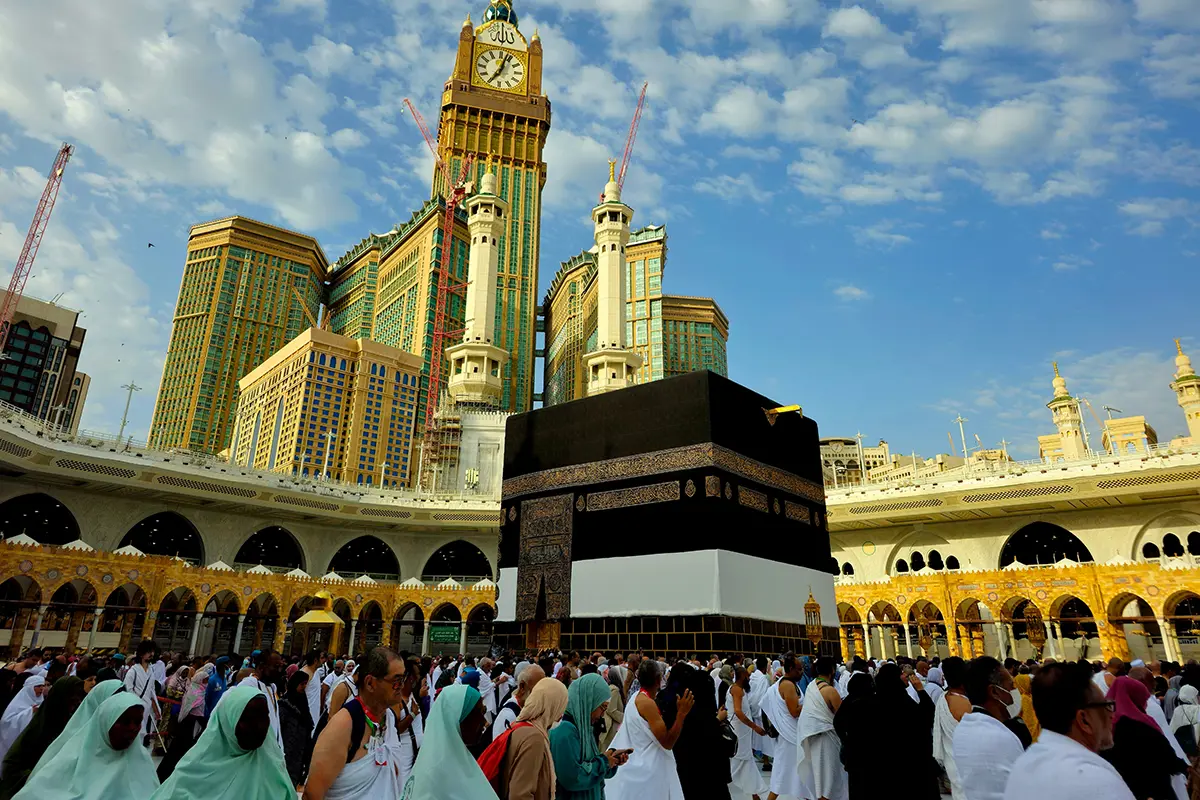
Echoes of Hajj Season Success: Improving Umrah Logistics
The successful conclusion of the recent Hajj season played a pivotal role in informing and enhancing the preparations for the current Umrah season. The Hajj witnessed remarkable advancements in crowd management, infrastructure development, and the implementation of smart technologies. These improvements are now being directly applied to optimize the Umrah experience, benefiting millions of pilgrims.
Key Improvements from the Hajj Season Translated to Umrah:
- Enhanced Transportation Networks: Investments in expanding and modernizing airports (particularly Jeddah's King Abdulaziz International Airport and Madinah's Prince Mohammad Bin Abdulaziz International Airport), the Haramain High-Speed Rail, and extensive bus networks proved crucial during Hajj. These robust systems are now readily available for Umrah pilgrims, significantly improving mobility between holy sites.
- Advanced Crowd Management Strategies: The rigorous planning and execution of crowd control measures during Hajj, including the use of advanced surveillance, data analytics, and pre-registration systems, are being adapted for the year-round Umrah season. This ensures the safety and smooth flow of pilgrims even during peak seasons.
- Technological Integration: The widespread use of digital platforms, electronic wristbands, and smart cards during Hajj for efficient tracking and service delivery has paved the way for the pervasive use of the Nusuk platform for Umrah. This technology integration is vital for achieving the efficiency targets of Vision 2030.
- Bolstered Service Efficiency: The overall improvements in service quality observed during Hajj, from healthcare facilities to logistical support, are designed to be a continuous standard for Umrah pilgrims, ensuring a high level of comfort and care.
The experience gained from managing the massive influx of Hajj pilgrims provides invaluable insights and refined operational procedures that directly benefit the ongoing Umrah season. This synergy between the two pilgrimages highlights Saudi Arabia's comprehensive approach to religious tourism.
Mandatory Accommodation Contracts: Ensuring Quality and Compliance
A significant regulatory update for the new Umrah season is the mandatory requirement for pilgrims to submit documented accommodation contracts with hospitality facilities that are officially licensed by the Ministry of Tourism. These contracts must be registered through the Nusuk Masar platform, which is an extension of the broader Nusuk ecosystem.
Reasons Behind the Mandatory Accommodation Contracts:
- Quality Assurance: This regulation aims to guarantee that pilgrims receive high-quality accommodation services that meet established standards, preventing instances of substandard lodging.
- Pilgrim Protection: By ensuring that accommodation is booked through officially recognized channels, the Ministry can better safeguard the rights of pilgrims and address any grievances related to their stay.
- Regulatory Compliance: It enhances regulatory oversight of the hospitality sector, ensuring that all facilities catering to Umrah pilgrims adhere to the Kingdom's laws and standards.
- Improved Planning and Logistics: Documented accommodation allows authorities to better forecast pilgrim numbers, manage resources, and plan for potential exigencies, especially during peak seasons.
- Combating Unlicensed Operators: This measure helps to curb the activities of unlicensed operators who might offer illicit or substandard services, thereby protecting pilgrims from exploitation.
Process for Accommodation Registration:
Pilgrims or their authorized Umrah agents are required to:
- Select accommodation from hospitality facilities licensed by the Ministry of Tourism.
- Ensure that a formal contract is established for the entire duration of the pilgrim's stay.
- Register this accommodation contract through the Nusuk Masar platform as part of the Umrah visa application process.
Authorities have strongly advised pilgrims and Umrah companies to ensure early documentation and registration of these contracts to avoid any potential delays in visa processing or entry into the Kingdom. This measure reinforces Saudi Arabia's commitment to a structured and secure pilgrim experience.
Vision 2030: Expanding the Horizon of Religious Tourism
The rapid progress and high volume of Umrah visas issued are clear indicators of Saudi Arabia's unwavering commitment to achieving the ambitious targets set forth by Vision 2030, particularly within the religious tourism sector. The Kingdom envisions a significant expansion of its capacity to host pilgrims, aiming to welcome 30 million Umrah pilgrims annually by 2030, a substantial increase from previous figures.
Key Objectives for Religious Tourism under Vision 2030:
- Increase Pilgrim Capacity: The primary goal is to accommodate a significantly larger number of Umrah and Hajj pilgrims through continuous infrastructure development, including expansions of the Grand Mosque in Makkah and the Prophet's Mosque in Madinah.
- Enhance Pilgrim Experience: This is a holistic objective encompassing every touchpoint of the pilgrim's journey, from visa application to departure. It includes improving services, providing world-class facilities, and fostering a spiritually enriching environment.
- Digital Transformation: Leveraging technology and digital platforms like Nusuk is central to streamlining processes, improving efficiency, and offering seamless services to pilgrims. This is vital for managing large volumes of visitors.
- Economic Diversification: Religious tourism is identified as a critical pillar for economic diversification, aiming to reduce reliance on oil. The growth of this sector is expected to create numerous job opportunities and contribute significantly to the Kingdom's GDP.
- Global Connectivity: Improving air connectivity and facilitating travel from various countries around the world is crucial to attracting more pilgrims. The introduction of new visa categories and simplified application processes (like the e-Visa and potential transit visas) plays a vital role.
- Cultural and Spiritual Enrichment: Beyond the rituals, Vision 2030 also emphasizes enriching the spiritual and cultural experience of pilgrims by facilitating visits to historical Islamic sites and providing comprehensive guidance.
Impact of Vision 2030 on Umrah and Hajj:
| Aspect | Pre-Vision 2030 (Approximate) | Vision 2030 Target (Umrah Annually) | Key Initiatives |
| Umrah Pilgrim Capacity | Millions | 30 Million | Infrastructure expansion, Digital platforms (Nusuk) |
| Visa Process | More Complex, Manual | Simplified, Digital (e-Visa) | Nusuk platform, streamlined applications |
| Pilgrim Experience | Traditional | Enhanced, Digitized, Seamless | Smart technologies, improved services, Nusuk App |
| Economic Contribution | Significant | Increased GDP contribution | Job creation, private sector involvement |
| Accommodation Standards | Varied | Standardized, Regulated | Mandatory documented contracts, licensed facilities |
| Mobility | Less Integrated | Highly Efficient, Integrated | Haramain Rail, improved transport networks |
The Ministry of Hajj and Umrah, in collaboration with other governmental entities and the private sector, is actively working towards these ambitious goals. The early success of the Umrah season is a promising indicator that Saudi Arabia is well on its way to realizing its Vision 2030 aspirations for religious tourism.
Visa Extension Initiative: Supporting Visitors' Departures
In a separate but related development demonstrating the Kingdom's focus on visitor management and welfare, the General Directorate of Passports has announced a 30-day initiative. This initiative, which commenced on Muharram 1, 1447 AH, allows for the extension of expired visit visas for final exit purposes.
Details of the Visa Extension Initiative:
- Purpose: To facilitate the departure of individuals whose visit visas have expired, ensuring a smooth final exit from the Kingdom.
- Applicability: This grace period applies to all types and categories of visit visas.
- Requirements: Any required fees and penalties associated with the expired visa must be duly paid.
- Application Method: Applications for this extension must be submitted via the "Tawasul Service" available on the Ministry of Interior's Absher electronic platform.
- Deadline: Individuals affected are urged to comply with the requirements and apply for the extension before the 30-day deadline to avoid any legal complications or further penalties.
This initiative reflects the Saudi government's commitment to providing flexible solutions for visitors and ensuring orderly procedures even for those whose initial travel plans may have been disrupted. The Absher platform is another example of Saudi Arabia's widespread use of digital services to manage administrative processes efficiently.
The Future of Umrah: A Continuous Journey of Improvement
The current Umrah season is poised to be a landmark period, not just for the sheer volume of visas issued but also for the comprehensive improvements in the overall pilgrim journey. The ongoing efforts by the Ministry of Hajj and Umrah to introduce reforms, integrate advanced technology, and ensure high standards of service are a clear indication of a forward-looking strategy.
As pilgrims continue to arrive in the Kingdom of Saudi Arabia, they will experience firsthand the tangible benefits of these advancements. From the ease of applying for an Umrah visa through the Nusuk platform to the seamless transportation and assured accommodation, every aspect of the pilgrimage is being refined to offer a comfortable, secure, and profoundly spiritual experience. The early figures are not just statistics; they represent hundreds of thousands of individual journeys of faith, made possible by Saudi Arabia's dedicated and innovative approach to serving the guests of God, truly aligning with the grand aspirations of Vision 2030. The focus remains on making the Umrah and Hajj pilgrimages accessible, convenient, and memorable for Muslims worldwide, solidifying the Kingdom's role as the heart of the Islamic world.
;More Travel News
-
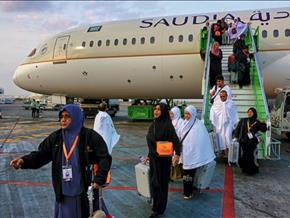 30-Jan-2025How to Find the Best Deals on Flights for Hajj and Umrah
30-Jan-2025How to Find the Best Deals on Flights for Hajj and Umrah -
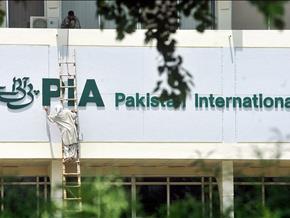 05-Sep-2024CAA Issues New Guidelines to Resolve Passenger Boarding Challenges
05-Sep-2024CAA Issues New Guidelines to Resolve Passenger Boarding Challenges -
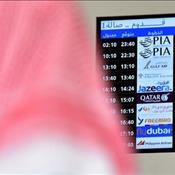 05-Feb-2021Saudi Arabia Impose Temporary Ban Entry from 20 Countries
05-Feb-2021Saudi Arabia Impose Temporary Ban Entry from 20 Countries -
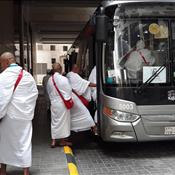 26-Mar-2022Saudi Arabia to Offer Umra visitors High Speed Train Services and Grand Prix Event Visitors Free Transport Services
26-Mar-2022Saudi Arabia to Offer Umra visitors High Speed Train Services and Grand Prix Event Visitors Free Transport Services -
 04-Dec-2019Can We Perform Umrah Every Year
04-Dec-2019Can We Perform Umrah Every Year -
 01-Jul-2021Maldives is a dream destinations a quick guide to your first trip to Maldives from Pakistan
01-Jul-2021Maldives is a dream destinations a quick guide to your first trip to Maldives from Pakistan -
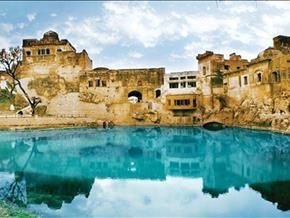 27-Apr-2024A beginner’s guide to top archaeological sites in Pakistan
27-Apr-2024A beginner’s guide to top archaeological sites in Pakistan -
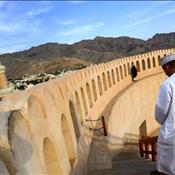 19-May-2021Oman Visa Free Tour To More Than 100 Countries
19-May-2021Oman Visa Free Tour To More Than 100 Countries -
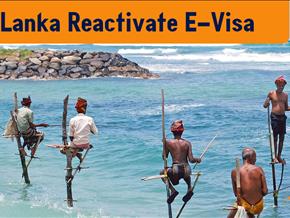 29-Sep-2024Sri Lanka Reactivates ETA Visa System After Temporary Suspension: What Travelers Need to Know
29-Sep-2024Sri Lanka Reactivates ETA Visa System After Temporary Suspension: What Travelers Need to Know -
 06-Feb-2025Saudi Government Suspends Yellow Fever Vaccine Requirement: Now Only Polio Vaccine Certificate Needed
06-Feb-2025Saudi Government Suspends Yellow Fever Vaccine Requirement: Now Only Polio Vaccine Certificate Needed -
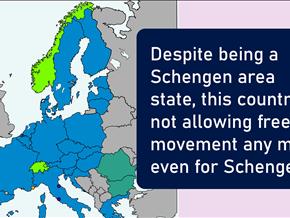 25-Oct-2023Despite being a Schengen area state, this country is not allowing free movement any more even for Schengen visa holders.
25-Oct-2023Despite being a Schengen area state, this country is not allowing free movement any more even for Schengen visa holders. -
 05-Oct-2022New UAE Visit Visa Rules 2022 Encourage Tourists And Professionals To Stay Longer
05-Oct-2022New UAE Visit Visa Rules 2022 Encourage Tourists And Professionals To Stay Longer
